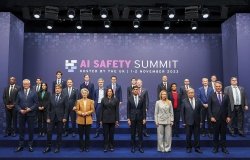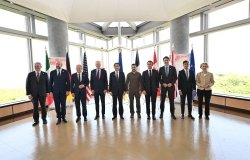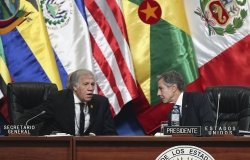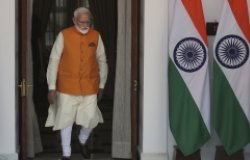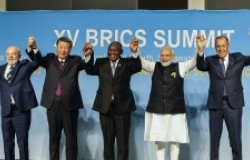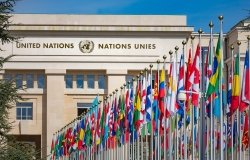Obama-Xi Meeting: Lowering Expectations?
Prime Minister Abe, President Obama and General Secretary Xi met in Beijing at the APEC Summit at a critical moment for both bilateral and trilateral relationships. Three experts in China and Japan discussed what the leaders might do to offer reassurance and set the region and the relationships on a better path. Download the podcast or read the summary here.
Overview
The Takeaways:
1. The Asia-Pacific Economic Cooperation (APEC) Summit was the first international meeting hosted by General Secretary Xi Jinping. He was expected to use the platform to underscore China’s status as a global power and regional leader.
2. The governments of China and Japan signed a four-point agreement on how to manage the bilateral relationship, which paved the way for a meeting between Prime Minister Shinzo Abe and General Secretary Xi. The agreement included language on territorial disputes in the East China Sea, with both side agreeing that “different views” exist over the status of the islands.
3. The APEC Summit affords General Secretary Xi an opportunity to recast China as a reliable and flexible partner after nearly 5 years in which China’s behavior in the Western Pacific has been viewed as increasingly coercive by China’s Asian neighbors and by the United States.
4. While both China and the U.S. used the APEC Summit to push their own competing free trade initiatives—the Free Trade Area of the Asia Pacific (FTAAP) and the Trans-Pacific Partnership (TPP) respectively—the summit is also an opportunity to strengthen U.S.-China cooperation. Elevating areas of potential agreement such as a Bilateral Investment Treaty or capping carbon emissions would benefit both countries and be considered a diplomatic victory for both General Secretary Xi and President Obama.
Speakers
Hosted By

Kissinger Institute on China and the United States
The Kissinger Institute works to ensure that China policy serves American long-term interests and is founded in understanding of historical and cultural factors in bilateral relations and in accurate assessment of the aspirations of China’s government and people. Read more

Indo-Pacific Program
The Indo-Pacific Program promotes policy debate and intellectual discussions on US interests in the Asia-Pacific as well as political, economic, security, and social issues relating to the world’s most populous and economically dynamic region. Read more
Thank you for your interest in this event. Please send any feedback or questions to our Events staff.



